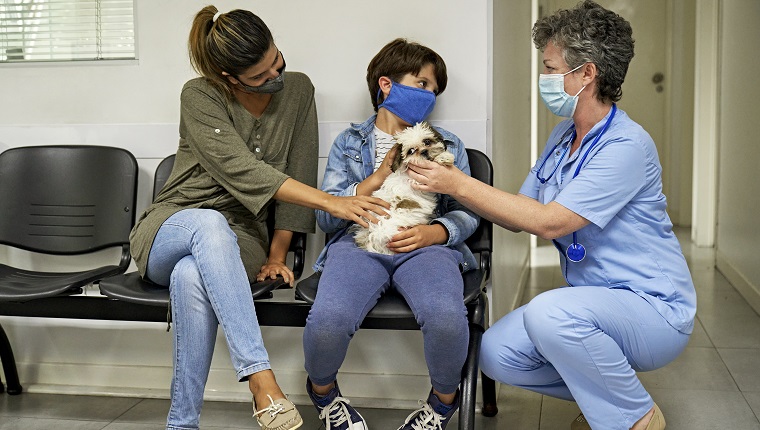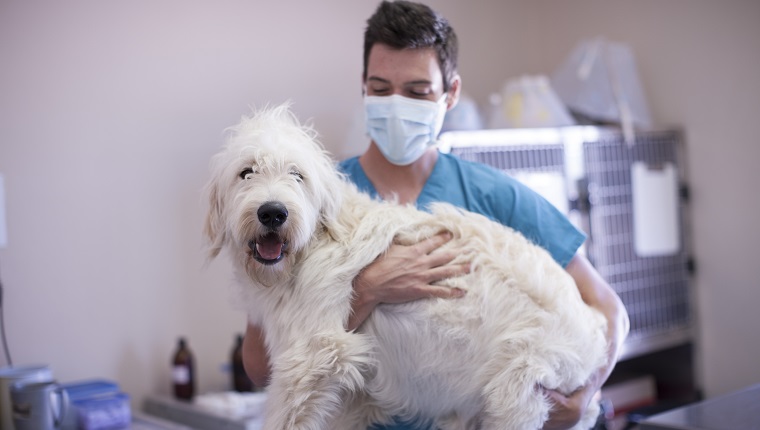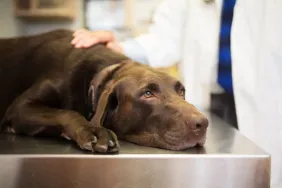Veterinary cardiologists in the United Kingdom have identified a concerning link between heart inflammation, or myocarditis, and Covid-19 in dogs and cats.
For humans, myocarditis can be a rare side effect of COVID-19 vaccines. In both dogs and cats, however, the occurrence appears to be far more prevalent.
Prior to COVID-19, only 1.5 percent of dogs and cats were diagnosed with myocarditis; after, this number jumped to 12.5 percent — an undeniable increase.
How Did Researchers Find This Link?
This uptick prompted a study by The Ralph Veterinary Referral Centre, where eleven animals with myocarditis were tested who had been exposed to COVID-19.
“These were dogs and cats that were depressed, lethargic, they lost appetite,” states Dr. Luca Ferasin in the study published by VetRecord.
“They had either difficulty breathing because of accumulation of fluid in their lungs due to the heart disease, or they were fainting because of an underlying abnormal heart rhythm,” Ferasin added.
For the study, researchers tested eleven dogs and cats whose human parents had a COVID diagnosis. In all cases, the animals became sick within three to six weeks of that diagnosis.
Of those tested, five animals tested negative for both antibodies and the virus itself; two cats and one dog tested positive for the Alpha strain of COVID; two cats and one dog tested positive for antibodies.
Regardless of a positive or negative test, however, all had a myocarditis diagnosis. More concerning, none displayed any of the typical signs of COVID used by most laymen (you, me) to identify the illness.
A Sleeper Disease, Lurking In COVID’s Shadow?

Veterinary Virologist, Margaret Hosie, from the MRC-University of Glasgow Centre for Virus Research, raised an important concern to NBC News.
Hosie relayed that it isn’t addressed in the study, or yet known, if general practice veterinarians are seeing this uptick. “But maybe that’s because those vets don’t know it’s a possibility,” she said.
In other words, awareness of the possible link between COVID and myocarditis is critical. Knowing to ask about COVID exposure needs to become more commonplace among vets, with still so much about the disease’s long-term effect still unknown.
Pet Parents Should Stay Vigilant
All of the pets involved in this study, with the exception of one, fully recovered, per Ferasin. And the uptick of myocarditis has returned to pre-COVID levels.
However, both Ferasin and Hosie advise pet parents to remain vigilant and informed, and to limit exposure to their pets if they become ill.
“If it is not possible to get someone else to look after their pet, they should consider wearing a mask when preparing their food to minimize the likelihood of infecting them,” Hosie advised.
Virus mutation is still very much a concern, and animals can become viral reservoirs, Hosie went on to say.
“Obviously we’re focused on preventing human-to-human transmission just now, because that’s crucial,” she said. “But if we were to take our eye off other species, we could be storing up problems in the future.”
DogTime has a full guide to the symptoms, causes, and treatments of myocarditis in dogs here. If you see concerning symptoms in your dog, plan a trip to the vet as soon as possible.
Did your dog become ill with myocarditis during the COVID pandemic? Do you take steps to keep your pets safe when you get sick? Let us know in the comments below.









